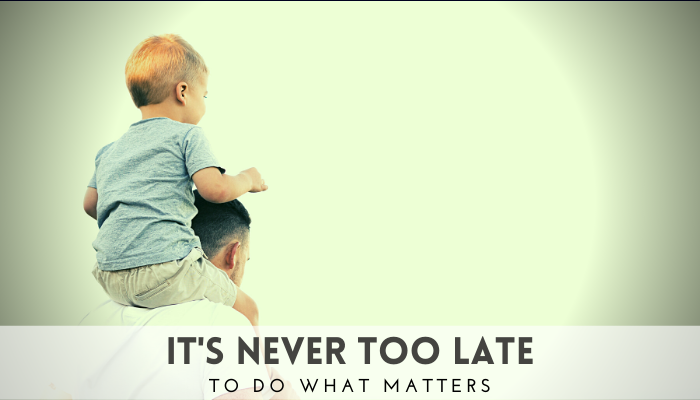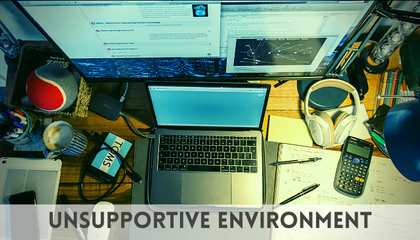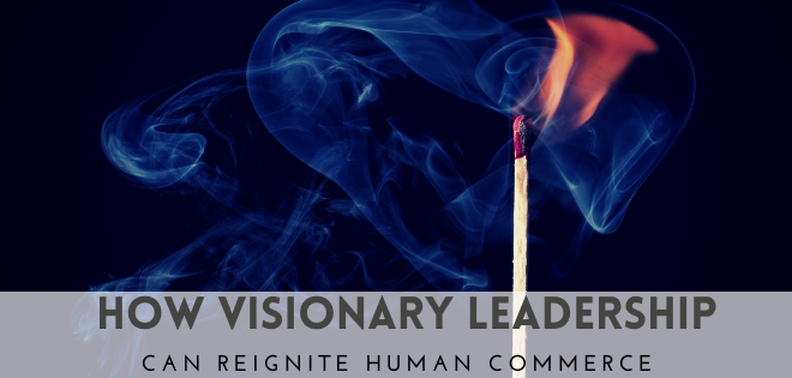How to Effortlessly Unleash Your Creativity and Insight Contributed by: Georgia Ellis Getting out of bed usually takes me a while, and I used to think this was a bad thing. Why aren’t I jumping out of bed like everyone else? I had pretty good sleep hygiene practices and usually get between 7-8 hours of sleep… surely I can get up straight away… but I couldn’t… I even began to feel a little guilty at my slower start to the day, especially when people like Mel Robbins (American podcast host, author, motivational speaker, and former lawyer) devoted an entire book to “The 5 Second Rule” - a simple technique to encourage us to leap out of the sweet warm comfort of our beds and go get our goals… Robbins used it to help herself get out of bed, back in her tough days. She found that if she counted backwards; “5-4-3-2-1 and ACTION!”, she would stop making excuses and jump right up. I won’t deny that having a hard time waking up in the morning could be the result of the natural effects of sleep inertia, your sleep habits and schedule, or sometimes other conditions… but in my case, there was something else going on, something that seemed to leave me feeling inspired and set me up for the day… I noticed that if I lingered in bed for roughly 10-15 minutes upon waking, something magical began to happen…Ideas and solutions would bubble up from within my psyche… ideas for programs and offerings, solutions to problems I was facing and even ways to have challenging conversations I was avoiding would present themselves.
As I lay there, I seemed to have access to what Napoleon Hill refers to in his seminal work “Think and Grow Rich” as “Infinite Intelligence”. According to Hill, Infinite Intelligence refers to a universal, all-encompassing intelligence that exists beyond the realm of human understanding. It's a form of divine intelligence that is accessible to individuals through their subconscious minds. Hill suggests that Infinite Intelligence is the source of all inspiration, creativity, and knowledge. It's the force that can guide individuals toward their goals and desires if they learn to tap into it effectively. Is this what I was tapping into as I lingered longer in bed? According to Hill, we can communicate with and receive guidance from this infinite intelligence, which can help us achieve our goals. Let's face it, as business owners, managers, and leaders, we're constantly striving to innovate, solve problems, and drive success. But what if we are overlooking one of the most powerful moments for creativity and insight that happens not in the boardroom, or brainstorming session but in the quiet moments between sleep and wakefulness? Picture this: you wake up in the morning, the soft glow of dawn filtering through your window. Instead of immediately leaping out of bed and diving into the day's tasks, you take a moment to linger, to let your mind gently transition from the depths of sleep to the clarity of wakefulness. It's in this seemingly idle moment that magic can happen. The science behind this phenomenon is fascinating. As we transition from sleep to wakefulness, our brain undergoes a subtle but significant shift in activity. During deep sleep, our brain produces delta waves, associated with restorative rest. But as we awaken, our brain begins to generate alpha and theta waves, which are linked to relaxation and creativity. It's during this transition that our subconscious mind comes to life. While we sleep, our brains are hard at work processing memories, emotions, and even problem-solving tasks. Ideas and insights percolate beneath the surface, waiting for the opportune moment to emerge. By taking a few moments to linger in bed upon waking, we create a space for these ideas to land. We tap into our subconscious reservoir, allowing creativity to flow freely. This relaxed state of mind, coupled with the transition in brainwave activity, sets the stage for breakthrough thinking and innovative solutions. But for some, lingering in bed can be torture when our lives are full of work and home life responsibilities that don’t allow for an extra 10 minutes under the blankets. If you want to take advantage of this powerful state without staying in bed, try delaying devices, screen time, and coffee until after low cognitive activities such as yoga, a shower or a walk. These activities have been known to also produce ideas and insights. There is also the danger of staying in bed too long as you will naturally move out of the Alpha/Theta creative state into the more active Beta brainwave, where your analytical mind and inner critic will start to emerge. So, if you can take a few extra moments in the morning, be sure to get up and act on the ideas and insights that emerge. For me, I usually head straight to my home office and write down the ideas that present themselves, then go about my morning routine and return to my office to take inspired action. Point in case, the idea for this article bubbled up earlier this week, I made a note of it when I got up, did some research, and scheduled today to write and post it. Remaining in bed is not just about the science. It's also about mindfulness and reflection. In our fast-paced world, we're often guilty of rushing from one task to the next without pausing to breathe. By lingering in bed for a few moments each morning, we practice mindfulness. We become more present, more aware of our thoughts and feelings. This mindfulness sets a positive tone for the day ahead, enhancing our overall well-being and mental clarity. So, the next time you find yourself tempted to leap out of bed as soon as you wake up, whether you feel like it or not, like the famous influencers are telling us to do, consider this: don’t reach for your phone, but give yourself permission to linger for just a few moments longer. You might unlock the key to your next big idea. Embrace the transition from sleep to wakefulness and watch as creativity and insight flourish. Your success may just depend on it. Do you find yourself pulled between your personal desires or responsibilities and doing what needs to be done for your business or career? In the early 2000’s while managing over one hundred and fifty staff spread across more than forty-one thousand square kilometers, (without Zoom or MS Teams) I was introduced to the concept of work life balance, and I began instilling the idea with the team. It sounded like a great theory at the time, especially with early mornings and late evenings after driving from location to location to visit team members. But with hindsight and knowledge backed by personal experience I came to understand that to obtain true work life balance, a 50/50 split, was not only impossible but trying to achieve it was creating unnecessary stress… kinda defeating the purpose. In the world we woke up in today, things are vastly different than twenty years ago, we can access work from personal devices, and connect with team members across multiple time-zones with the click of a mouse and more of us are choosing to work from home making it so much easier for our focus to be hijacked by less important and often trivial distractions. This can have a detrimental flow on effect on our productivity, relationships and performance as we unconsciously relegate the things that matter the most to the ‘I’ll get to that later’ list. In the leadership programs we run, there is a fun and often tormenting activity we do where participants are forced to let go of the things they believe are important to them in order to get to what really matters most… One by one we witness managers and leaders letting go of their gym memberships, their barista brewed coffee, their nightly glass of wine, their entertainment subscriptions, their hobbies, and even personal freedom is sacrificed as they narrow down to the one thing that matters most to them. Do you know what 98% of participants declare as their most important thing, what they couldn’t live without? It’s Family! If you find yourself doing things that are not important, or chipping away at outdated processes, maintaining unproductive habits that take you further and further away from what matters most to you or heck, you may still be trying to achieve the impossible 50/50 work life balance, you know, feeling guilty at home on the days when work needs to be a priority and thinking you’re in the wrong, or your reputation will be ruined, when personal and family commitments impact your work. It doesn’t have to be this way, you can equip yourself with cutting edge tools to help you navigate the demands of the day, increase productivity, and focus on what matters. I know it can be painful doing things that are not working for us and at the same time not having the knowledge to push back confidently and intelligently on the things that negatively impact our well-being, relationships, goals, values, and time. Before learning or sharpening the tools that will help you do more of what matters… you may want to first understand the 6 most widely experienced derailers I see people from all walks of life struggle with. After 20+ years of diving into the fields of human potential, mindset and neurobiology and psychology combined with 1000’s of hours coaching I noticed common traps we all unwittingly fall into when it comes to getting to the things we really want to do or spending time with the people that matter most. If you are like me and want good results, I have no doubt that you know that to achieve results and perform at our best we need to be confident in our decisions, efficient in our thinking and productive with our time. This is easier said than done because no matter how hard we try to be productive and do what matters, there always seems to be people, situations, notifications, and that pesky inner voice that have the potential to distract and derail us. Derailer #1 - The People Pleaser What I have noticed both within myself in the past, and with coaching clients is the first issue we face. To put it simply, we want to please everyone. Being a people pleaser and not being able to say no effectively leads to doing things not aligned to our goals or doing things to keep other people happy or maintain an unhealthy peace. Derailer #2 - Wired to Avoid Change The second derailer comes from our neurobiology - we are wired to avoid uncertainty. This innate need to feel safe can slow down or even prevent decisions from being made. This leads to procrastination because we’re afraid to make a start or do things differently. We end up fighting against anything that takes us away from homeostasis, clinging to how things are or how things were, wired to stay in the safety of an outdated way of being. Derailer #3 - Unhealthy Habits We can look to biology to understand the third derailer. Derailer number three is our unhealthy well-being habits draining us of the energy we need to get things done. Our energy is derived from the type of food we eat, how much we move, and the quality of our sleep. These are all important factors that impact energy levels and our ability to do what matters, often giving preference to an easy task (think Netflix, gossiping or social scrolling) to match our low energy levels. Derailer #4 - Misaligned Identity The fourth derailer is a psychological one. When our subconscious identity is not aligned to the work we need to do we will unconsciously sabotage our efforts. When who we assume and believe we are is not aligned to who we need to be to get the work done we end up going in circles often reverting to our old ways. If you want to dive a little deeper into the power of your self-image, grab copies of Gay Hendricks book ‘The Big Leap', Chip and Dan heaths Book 'Switch' or Maxwell Maltz book ‘Psycho Cybernetics’. The deeply held beliefs you hold about yourself create a protective system that can sometimes lead to us sabotaging our efforts to focus on what really matters. Derailer #5 - Unsupportive Environment The fifth derailer is an environmental one. You can't be productive if your physical, social, or mental environments are unsupportive. To set yourself up for success in this area be sure to create an uncluttered space dedicated to the work that needs to be done. Ensure that you are socially supported by engaging in a coach or buddy to cheer you on and hold you accountable to delivering on your objectives. It is equally important that you create a supportive mental environment by choosing narratives that support your outcomes such as telling yourself things like:
In essence you’re giving yourself a pep talk to override any beliefs that suggest you don’t have the time, energy, or capacity. Remember: Your mental attitude will always influence you output. Derailer #6 - Distractions And sixth most common thing that derails us is distractions, and wow… the world certainly has turned up the volume on distractions and shiny objects, stealing our attention away from what’s important. Distractions big or small such as noise, notifications, interruptions from other people or pets, regularly checking emails or your phone. Anything that takes you away from what you are doing are the biggest derailers of productivity. These unwanted intrusions on our time slowly eat away at any hope we may have of consciously integrating our work with our life. Believe it or not distractions are the easiest to fix when you know how to set boundaries for yourself and for others. If you'd like some easy fixes to help you deal with distractions grab yourself a copy of Nir Eyal’s book ‘Indistractible’ Getting Back On Track What’s interesting about these six common derailers is that we can overcome all of them by overcoming the first one. Once we know how to say no in an enlightened way, we begin to help ourselves and others to let go of the things that no longer serve us and to focus on what’s important. We can set boundaries for ourselves to create healthy well-being habits, we can set clear limits and expectations as to the person that we want to become, we can say no to the things in our environment that get in the way of our best performance, and we can deliberately put measures in place to ensure we are not distracted from what matters most moment to moment. It’s up to you to get yourself on track and more importantly, stay there. The tools are available in books, podcasts, and courses. The first step is to determine what really matters to you, what’s your priority in any given moment then check to see which of the derailers are present. We know that knowledge alone doesn’t do a darn thing, so if you want support to kick any of your bad habits, outdated self-beliefs or fixed mindset to the curb… I’m opening up my diary to 6 people who are yet to experience Blue Chip Minds Coaching and who want to get back on track to join me for some complimentary 1:1 time in a 30min get me back on track session. So… what stops you most often?
Drop me a line, I’d love to hear what derails you and how you plan to get back on track. Here’s to you doing more of what matters. Contributed by Georgia Ellis I know it's hard right now balancing commercial goals with the well-being and growth of your people and somehow you did it! It is an absolute honour to work with business leaders and decision makers who not only realise that that their people must come first, above the customer and the shareholder, but they take inspired action towards making it a reality for their organisation. I often wonder how many organisations expect their tired, wired and depleted team to show up and be the best for each other and their customers, especially when they have not been able to invest in themselves first. How can a person truly connect, influence and shine for a business if at first, they can't shine for themselves? I love the challenge of working with you to help you serve your people in a way that has never been done before. I love that you knew there was a better and different way to invest in your team and when we shared our approach it resonated deeply with you, and you took immediate action to get started. I now realise you had been searching for unique and proven ways to serve your people and the business at the same time, and here we are :) I love that you generously invest in your people’s personal growth, professional development and wellbeing, to help them thrive in life so that in their thriving your workplace becomes a hive of positive and profitable activity. I admire the work you do and your bigger vision as a business to truly make the world a better place with your products and services. Instead of playing the short and finite game, your organisation plays the long and infinite game where everyone wins including your customers, clients, team members, shareholders, stakeholders, vendors and the world we share. I am forever grateful that you found us and that we have worked together to create solutions to meet your unique needs. It is a delight working with you all, most importantly and above all, we love your team, your leaders and all the people who participate in our programs, they show up, play full out and in doing so they become better humans. Together your organisation gets to meet your goals and Blue Chip Minds gets to meet ours. I admire that you listened to that deeper knowing that went against convention, you sensed and truly believed that you have to, need to, and want to do more for your people. Your commitment to building self-awareness, helping people think differently and providing a wider lens for them to see challenges in a new light and providing them with the tools to thrive… not just at work…. but in life, is a massive paradigm shift as to how organisations approached their workforce in the past. It’s because of you that I have faith in the future of humanity and big business. Your leaders have shown that they are ready to lead in a multidimensional way and now they have the tools to do it, helping your organisation to become a human centered commercially minded workforce. I can’t say I’ve ever felt this way about a business client, and not sure if it’s good for business to say this out loud, but to hell with convention right! I have to say it. I Love You! I'm thankful that we are aligned and our work together is profitable and beneficial for everyone! Thank you for reaching out. Thank you for being a modern-day Robin Hood and showing up for your people.
Thank you for caring - together we can help to make the world a better place. In gratitude Georgia + The BCM Team. Reigniting Human Commerce with Visionary Leadership To my continually learning mind, I always thought commerce was a business term that related to an intent of making a profit. I had not come across an older meaning, which I might add, I love, where commerce once related to the social dealings between people. Imagine, if you will for a brief moment, a business that focused equally on making a profit and improving the interactions between humans. Over the last few weeks, I have been delving into a few different business models and research articles, chatting with senior leaders and heck, I even chatted all things leadership on Clubhouse to better understand how we can create more warmth and understanding in our human interactions both at work and socially, and whether organisations actually invest in improving their Human Commerce. Sadly, I have found only a handful of socially responsible organisations channelling their L&D funding into creating better humans within their workforce while also investing in technical and on the job skills. If philosophers have been telling us for centuries that the ultimate goal of existence is to achieve our highest good, for our values to be met and priorities to be achieved, then we can’t deny that we need a supportive social system to help us in our personal pursuit of happiness. Everything about our existence nowadays relies heavily on human interactions, from the parcels being delivered from amazon, to the checkout assistant at the supermarket and the person in a foreign country doing their best to solve our problems over the phone. Interactions with friends, colleagues and family also get added into the mix. We can’t deny that our happiness is entangled with, and relies on, Human Commerce. Each of us, regardless of our assigned roles at home or work, needs to take responsibility for becoming better within ourselves in order to support others in an effort to improve the warmth of human interactions and to increase our collective happiness quotient. How can you contribute to our collective happiness quotient? The answer is simple, aspire to become a Visionary Leader. Most of the population either works for a business or owns a business. It seems strange to say that happiness and business have anything to do with each other since for most people work can be soul destroying. Yet research is showing us that the two are linked business can enhance human wellbeing! In July 2019 during her TED talk, Nicola Sturgeon, the First Minister of Scotland displayed Visionary Leadership and discussed the importance of creating an environment that allows everyone to thrive. She said: “What we choose to measure as a country matters. It really matters, because it drives political focus, it drives public activity…. GDP measures the output of all of our work, but it says nothing about the nature of that work, about whether that work is worthwhile or fulfilling.” She goes on to say that: “Economic growth matters -- it is important -- but it is not all that is important. And growth in GDP should not be pursued at any or all cost… the objective of economic policy should be collective well-being: how happy and healthy a population is, not just how wealthy a population is…. when we focus on well-being, we start a conversation that provokes profound and fundamental questions. What really matters to us in our lives? What do we value in the communities we live in? What kind of country, what kind of society, do we really want to be?” It is refreshing to hear world leaders speak of balancing Human Commerce with gross domestic product, and I hope that one day it is reality. In the short term, perhaps we need to look to businesses, not to governments, to effectively kick-start the wellbeing movement by balancing profit and people and contributing to the wellbeing and welfare of its workforce and community. By helping their employees grow and delighting their customers with innovative and meaningful products, businesses have an opportunity to make a positive contribution to the world. This type of approach (if adopted) would also have a positive effect on the business as the community reciprocates support. The aim of a visionary leader would be to nurture and create more visionary leaders. Creating a movement of people who know how to infuse soul, in the form of emotional and intellectual energy, into their organisation and community. How do you become a Visionary Leader? 1. Have a Vision that is Greater than You. Designing a vision that is beyond yourself creates opportunity and challenge for you and the people you lead to do their best. All of the studies that I have researched investigating Flow states, show that it is experienced predominantly at work, in contrast to the belief that it show up in our free time. This rich experience often occurs at times that involve moments of crisis or when a person is stretched beyond their known limits or challenged to be creative in the pursuit of a meaningful vision. These moments of deep Flow, caused by the right amount of challenge, infuse soul into a person’s work - they end up transformed through their efforts and become someone more complex than they had been before. This is usually good for the individual and the business. Think about how much time you spend either at work or working on tasks for work at home. It’s a lot of your time! If you are part of a business that doesn’t enable you to grow as a person, to grow in self-knowledge and wisdom and build your ability to relate to others, the business is not doing you (Human Commerce) or their bottom line (Business Commerce) any favours. What we need are more workplaces where people can learn more about themselves through the pursuit of a worthy vision and integrate the knowledge to promote self-awareness and increase their mental complexity. 2. Build Trust Having a vision for your team, family or organisation to move towards can be an incredible motivator, however, a vision on its own won’t build sustainable Human Commerce. The most important principle of Human Commerce is trust. No one will buy into your vision if they don’t trust you or each other. When working towards a common goal, a Visionary Leader can build trust through motivating people by combining the Individuals Interests and the Common Interest of the group while also embodying the four trust building leadership traits; Credibility, Reliability, Empathy and Low Self-Orientation. A Leader can usually improve an Individuals interests with external incentives such as pay increases, promotion or a fancy job title. However common interest is earned through a demonstration of respect for the value of each person. Most team members won’t be of service to a leader’s vision unless the rules are fair, their contribution is recognised, and their integrity is respected. When a Leader cuts corners, shows favouritism, is unfair, doesn’t do what they say they will do or is thoughtless, they undermine the common interest of the group and trust diminishes. When this happens on a regular basis, the only thing keeping the vision alive will be external incentives. Which, unfortunately, over time will have a detrimental effect on the business in the form of low morale and less profit as more extrinsic incentives are needed to keep people performing their job. A Visionary Leader can build trust by investing their mental energy into monitoring and enhancing the wellbeing of everyone. More importantly, to build credibility, reliability, empathy and to balance their focus between their personal needs and the needs of the collective. they must develop self-discipline based on self-knowledge. 3. Develop Self-Discipline and Self-knowledge.“The only journey is the one within”. We all know that nothing is ‘free’ in the material economy, similarly nothing comes free in your psychic economy either. If you are not willing to invest energy in understanding your mind and body (your internal reality) and end up wasting time and money chasing external rewards, you lose the ability to master your life and end up a puppet of circumstances. Getting to know yourself as a leader must involve questioning which of your values and beliefs are fundamental and support your vision and which ones have no substance or have been acquired by accident and no longer serve you or your vision. Knowing how to think is far more valuable in this day and age than knowing what to think. A cutting-edge way to gain self-knowledge is to make accessing Flow an integral part of your life. 4. Create an Environment that Allows People to Thrive In his book “Good Business” Mihaly Csikszentmihalyi suggests there are two pillars of happiness and the fulfilment of potential. The first pillar is ‘differentiation’ this involves realising that you are unique and responsible for your well-being and are willing to develop your uniqueness wherever it leads, enjoying the expression of our being in action. The second pillar involves ‘integration’ this is realising that even though we are unique, we are also enmeshed in networks of relationships with other humans, culture, and with the surrounding natural and man-made environment. A person who is fully differentiated and integrated develops high levels of mental complexity and is more likely to lead a happy, vital and meaningful life. They are also known to contribute positively to their work and improve Human Commerce. They are, as Abraham Maslow describes ‘Self-actualised humans’, and they are happy knowing they can continue to activate their potential. A Visionary Leader ensures they develop every team member, regardless of job title, to reach this level of awareness. To do this a Visionary Leader purposely creates an environment that allows people to;
Conventional Leadership Be Gone! So, what if nothing changes? What if businesses and their Leaders continue to tip the scale in favour of making a profit over the increasing need to balance profit with Human Commerce? In my role at Blue Chip Minds, I see first-hand the effects on business and their workforce when conventional thinking and leading is the norm. People are either overworked, burnt-out, feeling devalued, or not encouraged to perform at their best. They are often treated as cogs in the process of production which ends up diminishing them as humans. It appears that focusing on profit and developing the technical skills to make greater profits, is doing more harm than good. Participants of our programs often share stories of Leaders they don’t trust, toxic work environments, feeling undervalued and not heard. Most express deep appreciation to us for creating the right circumstances for them to integrate knowledge within themselves and help them to gain clarity on how they can be a better human personally and professionally. What We Can Do – Together! Instead of ignoring the complexity of humans, businesses and leaders can embrace our need for love and growth and help motivate workers to pursue common goals by having an appealing vision, establishing trust, encouraging individual growth and to stop depriving workers of the joy that comes naturally from doing their best. If you are an individual in an organisation, I invite you to take full responsibility for creating your happiness. If your workplace or manager doesn’t give you clear goals, create your own. If you are not provided with immediate feedback in relation to your performance so that you can adapt, ask for feedback outside your annual or six-monthly review. If your work is not challenging you to grow, find a way to dial up the challenge of your role. We all have an incredible opportunity to help create a better future for each other and to shape workplaces that are as exciting as a sports match final and as soulful as a spiritual retreat. Where Human Commerce and business profit both share equal space on meeting agendas and in business expenditure. When the well-being of a workforce is at the heart of every business decision, it creates a better, healthier, fairer and happier organisation, and the business role models how society can find happiness together in a disconnected world. Georgia If you are looking for ways to develop Visionary Leaders, a responsible workforce, or invest in yourself, our most popular professional and personal development programmes include:
|
Authors
Our Contributors are a mix of passionate and switched on Humans ready to share their, career, business, well-being, leadership and performance insights with you so you can be the architect of your own extraordinary future! Archives
May 2024
Categories
All
|
Global professional development solutions for individuals and organisations.
Working with Individuals and organisations in;
Australia | Singapore | Hong Kong | United States | India | United Kingdom | Dubai | China | Poland
Malaysia | New Zealand | Japan | Belgium | Austria | South Africa | Brazil | Canada
Working with Individuals and organisations in;
Australia | Singapore | Hong Kong | United States | India | United Kingdom | Dubai | China | Poland
Malaysia | New Zealand | Japan | Belgium | Austria | South Africa | Brazil | Canada
|
We acknowledge the Traditional Custodians of the land on which we live, work, meet and play. This most often is the Wurundjeri people. We pay our respects to Elders past, present and emerging of the Kulin Nation. We extend gratitude and respect to Aboriginal and Torres Strait Islander peoples and global indigenous cultures for their incredible wisdom, resilience, deep connection to the natural environment and their deeply transformative spiritual practices.
We have so much more to learn from you. |
Copyright © All Rights Reserved BLUE CHIP MINDS 2013 - 2021











 RSS Feed
RSS Feed
